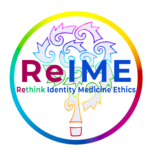
Principles Of Ethical Care
For The Treatment Of Gender Dysphoria In Minors
Gender Dysphoria is a feeling of distress or discomfort with one’s body that might arise in an individual related to a personal sense of who they are (identity) or how they express themselves (mannerism, habits, appearance or traits) which is not in alignment with their biological sex.
Not all individuals who have an identity or expression incongruent with their biological sex suffer from gender dysphoria.
Not all individuals who suffer from gender dysphoria have an incongruent gender identity.
A diagnosis of gender dysphoria (according to the DSM-V) is principally based on the individual’s understanding and experience of cultural sex roles and gender stereotypes.
The following are Principles of Ethical Care for treating minors with Gender Dysphoria.
Each patient/client is…
(1) Treated with respect and empathy in a neutral non-judgmental clinical environment committed to supporting the child/youth and addressing their gender dysphoria free of coercive techniques or intentions.
(2) Treated holistically as individuals with personal psychological, physical and social histories and relationships.
(3) Entitled to age appropriate exploration of …
(a ) depth psychology with respect to identity development and gender expression, including familial and cultural factors such as sex roles and gender stereotypes,
(b) co-morbid mental and/or physical condition that may con tribute to or cause their gender dysphoria,
(c) their identity and/or expression and its relationship to their sexuality and/or sexual identity, and
(d) information regarding the risks and benefits (both physical and social, both short and long term) of medicalization and the alternatives as treatment for their gender dysphoria.